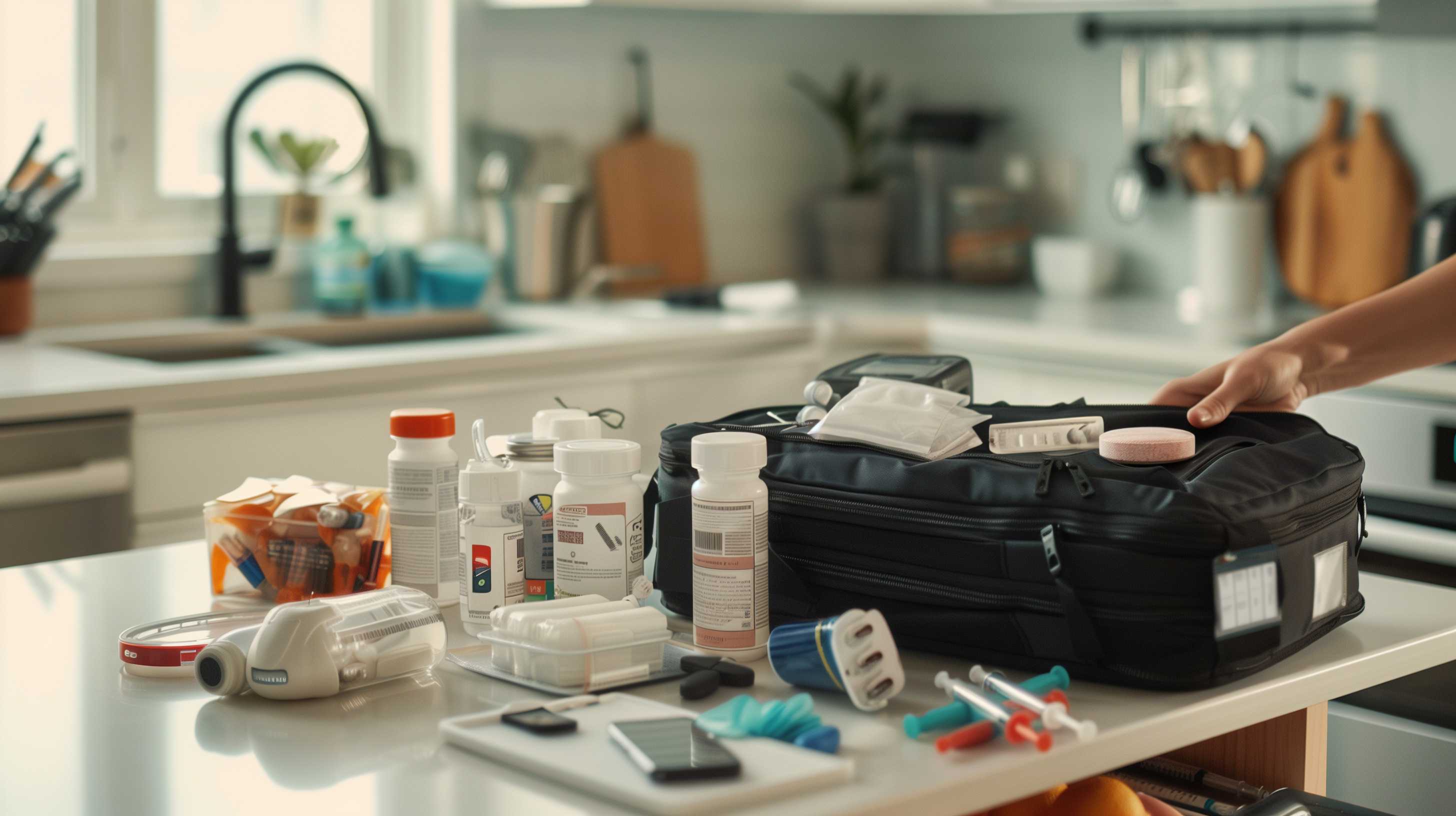Written by: Amanda Phillips
Living with a chronic illness can make impromptu events, like power outages, even more stressful. Whether you identify as a Spoonie or are managing a chronic illness, your medical routine—whether it includes prescription medications, injections, or dependence on medical devices—requires careful preparation in case of an outage. Power outages can disrupt access to refrigerated medications, make symptom management difficult, and add extra challenges to your daily routine.
In this guide, we'll discuss essential steps to take before a power outage and offer tips on how to stay safe and manage your health during an outage. Whether it's keeping medications cold, having the right supplies on hand, or knowing what to do in an emergency, preparation can help reduce anxiety and ensure your health is protected.
1. Stockpile Shelf-Stable Medications and Essentials
For many Spoonies, medications are a lifeline. While some medications—such as insulin or biologics—require refrigeration, it’s essential to plan for contingencies. Keep a 7-14 day supply of all your essential medications on hand in case a power outage disrupts access to the pharmacy.
If your medications require refrigeration, invest in a portable cooler or insulated medication bag that can keep them cool for several hours. Products like the Mini Pill Pouches can help you keep your pills sorted and ready in case of an emergency.
Pro Tip: Store medications in the coldest part of the refrigerator, usually the back bottom shelf, to keep them cool for as long as possible during a power outage.
2. Charge Power Stations and Backup Batteries
If you depend on medical devices such as oxygen concentrators, CPAP machines, or infusion pumps, make sure to charge portable power stations or extra battery packs in advance. Consider investing in a backup generator if possible.
If buying a generator isn’t an option, contact your local utility company to see if they offer priority power restoration for homes that rely on life-saving medical equipment. Having bottled water, electrolyte drinks, and your Take Your Meds Tumbler nearby can help prevent dehydration, especially if you live with a condition like POTS (Postural Orthostatic Tachycardia Syndrome).
3. Stock Up on Easy-to-Eat Foods
When you're fatigued or unwell during a power outage, cooking can feel overwhelming. Keep a supply of non-perishable snacks like granola bars, protein shakes, or crackers to sustain your energy.
Quick Checklist:
- Store bottled water—at least 1 gallon per day per person.
- Keep non-perishable snacks on hand that don’t require cooking or refrigeration.
- Have a cooler with ice packs ready for medications that need to stay cool.
4. Have an Emergency Medication Kit
Power outages can happen without warning, so it's important to have an emergency medication kit ready. Include a few days’ worth of essential medications, including those for pain, inflammation, and flare-ups, such as steroids.
Emergency Kit Must-Haves:
- Daily medications in pill, injection, or other forms
- Band-aids, alcohol wipes, and gloves for injections or wound care
- A portable charger for your phone and medical devices
- A list of emergency contacts, including your healthcare provider
5. Know Local Emergency Resources
Research local hospitals, urgent care facilities, and pharmacies in advance that are likely to have backup generators. It’s helpful to know where to go in case of a medical emergency during an outage. Keep your doctor's contact information handy for advice during the outage.
If you live alone, inform a close friend or family member of your condition and plans for what to do during an outage so they can check on you and offer help if needed.
6. Stay Comfortable in Extreme Temperatures
If you have conditions that are worsened by extreme temperatures, staying comfortable is crucial during an outage. During winter months, power outages can leave you cold, which can exacerbate joint pain and stiffness. Keep items like the Infusion Day Blanket and warm socks available for extra warmth when heat is unavailable.
For those sensitive to heat during the summer, have a portable fan, battery-operated cooling devices, or damp washcloths ready to cool down.
Comfort Tips:
- Extra blankets and warm clothing for cold weather
- Cooling packs or battery-operated fans for hot weather
7. Plan Relaxing Activities to Ease Anxiety
Power outages can disrupt routines and cause anxiety, especially for those managing chronic illness. Prepare by having relaxing activities planned, such as reading, listening to soothing music, or practicing mindfulness. A comfort tote filled with books, puzzles, or your favorite soothing playlists can help keep you calm during an outage.
Relaxation Tips:
- Keep your favorite book or calming music on hand.
- Practice deep breathing or mindfulness techniques to reduce anxiety.
- Prepare your Feel Good Tote with comforting items to pass the time.
Conclusion
For Spoonies and chronic illness patients, preparing for a power outage takes extra thought, but it’s worth it. By ensuring that your medical needs are met, whether through backup power sources, refrigerated medications, or plenty of water and comfort items, you can manage your health safely during an outage.
Stay connected to your support network, reach out to your healthcare provider if necessary, and most importantly, take care of your comfort and well-being. A little preparation can help reduce stress and give you the confidence to handle power outages with ease.




Understanding PTSD from Medical Trauma: Overcoming the Triggers
A Guide on How to Move with a Chronic Illness